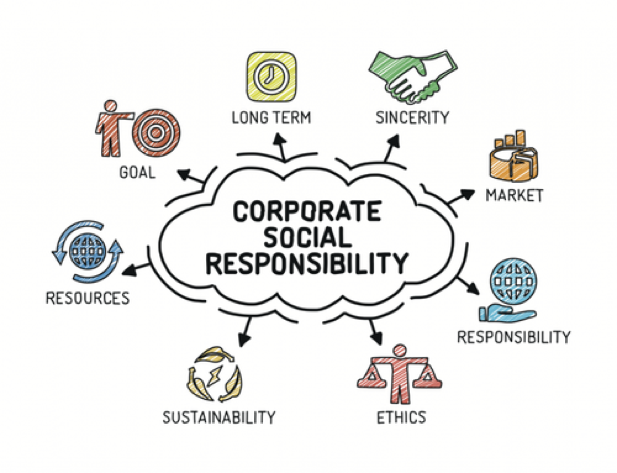By Lorraine Dixon
Business, Environment and Sustainability Specialist – KOEE

Against the backdrop of a shrinking natural resource base and societies shackled by inequality, the role of business in helping to drive sustainable development is under more scrutiny than ever before.The engagement of business with sustainability first began through Corporate Social Responsibility (CSR). There is no universally accepted definition of CSR. A 2009 publication on CSR in sub-Saharan Africa by the German Ministry for Economic Cooperation and Development (GTZ, 2009), states that: CSR refers to the accountability of corporates, to both shareholders and stakeholders for their utilization of resources, for their means of production, for their treatment of workers and consumers and for their impact on the social and ecological environment in which they operate. Cheruiyot and Tarus (2016) defined CSR in Kenya as the long-term commitment of organizations to social, economic, legal and environmental rights and responsible outcomes for the sustainability of humanity.
CSR in Kenya has long been characterised by voluntary actions of a philanthropic nature, particularly directed towards challenges of persistent poverty, poor access to education, health care, water and sanitation facilities, as well as food insecurity. However, there has been a slow shift to addressing employee and environmental issues, in the pursuit of sustainability, as reflected in global trends.
A recent study revealed that most business managers attribute their sustainability initiatives and practices to the need to mitigate their company‘s social and environmental impacts, while some use the initiatives to improve brand image, build trust, and reputation (KCIC Research, 2018). There has been growing recognition of international instruments and networks that aim at consolidating business efforts towards embracing sustainability. The UN Global Compact is an example of this, and it supports companies to do business responsibly by aligning their strategies and operations with Ten Principles on human rights, labour, environment and anti-corruption; and take strategic actions to advance broader societal goals, such as the UN Sustainable Development Goals, with an emphasis on collaboration and innovation.
The Global Compact Network Kenya (GNCK) was first launched in 2005 with the strategic objective of spearheading and catalysing actions aimed at promoting good business practices by building capacity and awareness of ethics, integrity and Corporate Social Responsibility in furtherance of the UN Global Compact‘s Ten principles. Only 140 companies are participating in the GCNK, indicating a gap in understanding and uptake of corporate sustainability by Kenyan businesses.
Globally, the last 20 years has seen the emergence of a new approach to Corporate Social Responsibility (CSR), with companies recognizing that improving their own impacts and addressing wider sustainable development challenges social and environmental problems will be crucial in securing their long-term success.The Sustainable Development Goals (SDGs) explicitly call on all businesses to apply their creativity and innovation to solve sustainable development challenges. As the SDGs form the global agenda for the development of societies, they allow companies to demonstrate how their business helps to advance sustainable development, both by minimizing negative impacts and maximizing positive impacts on people and the planet (GRI, UN Global Compact &WBCSD, 2015).
Increasingly, high profile companies are implementing CSR processes such as public commitment to standards, community investment, continuous improvement, stakeholder engagement and corporate reporting on social and environmental performance. This has resulted in a transition of some companies’ efforts under the umbrella of Corporate Shared Value (CSV). This is defined as “policies and operating practices that enhance the competitiveness of a company while simultaneously advancing the economic and social conditions in the communities in which it operates.” (Porter & Kramer, 2011) Three key ways that companies can create shared value opportunities are by reconceiving products and markets; by redefining productivity in the value chain; and by enabling local cluster development (Porter & Kramer, 2011).

Safaricom is an example of a Kenyan company that has embraced the concept of CSV. Safaricom is the biggest telecommunications company in the country providing voice, text, data and mobile money transfer services. The company leverages the power of mobile technology to deliver shared value propositions that disrupt inefficiencies and impact lives positively in the health, agriculture and education sectors (Safaricom, 2019). DigiFarm, the company’s integrated agriculture platform that helps agribusinesses and smallholder farmers share information and transact, won the Shared Value Award at the August 2018 Loeries Awards held in South Africa. Safaricome started the process of integrating nine of the 17 SDGs into its core business strategy in 2016. Its nine priority goals are the goals related to health; education; affordable and clean energy; decent work and economic growth; innovation and infrastructure; reducing inequalities; responsible consumption and production; climate action; peace and justice and partnerships. The company also hosted the Africa Shared Value Summit in Nairobi in May 2019, which attracted participants from 18 countries.
Therefore as the corporate sustainability landscape changes, it is important to recognise the need for awareness creation and education on the important role business has to play in sustainable development, not only for society, but also for itself. This will help empower the sector in Kenya to embrace sustainability in a more holistic manner.
References
Cheruiyot, T.K., and Tarus, D.K. (2016).CorporateSocialResponsibility inKenya: Blessing,CurseorNecessaryEvil?
GRI, UN Global Compact, and WBCSD.(2015). SDG Compass: The Guide for Business Action on the SDGs.
GTZ. (2009). Built-in or bolted-on Corporate Social Responsibility in sub-Saharan Africa: A survey on promoting and hindering factors.
KCIC Research. (2018). Public and Private Sector Perceptions of Sustainability in Kenya: Practice, Barriers, Stakeholder Participation.
Nyaga R.N. (2016). Mainstreaming Corporate Social Responsibility for Environmental and Social Development in Kenya.
Porter, M. E., & Kramer, M.R. (2011). Creating Shared Value How to reinvent capitalism and unleash a wave of innovation and growth. Harvard Business Review, January-February 2011.
Safaricom (2019). Towards Reducing Inequalities: 2019 Sustainable Business Report.



Leave a Reply
Want to join the discussion?Feel free to contribute!